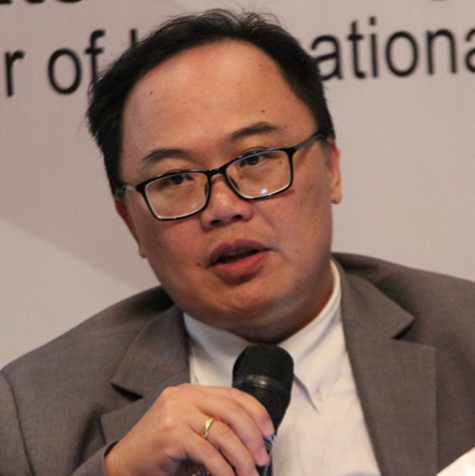By James Chin
KOTA KINABALU: This Saturday, Sabah goes to the polls in what will be remembered as the first state election where the battle lines are unmistakably clear: Sabah-based parties versus Malayan parties.
Gone are the days when the distinction could be blurred with clever branding, joint logos, or promises of “one big happy Malaysian family.”
This time, the voter can see exactly who answers to Kota Kinabalu and who still takes instructions from Putrajaya or the party warlords in Kuala Lumpur. The masks are off.
This clarity did not appear overnight. It is the direct consequence of the “40% revenue verdict” delivered by the Federal Court in 2023 and the federal government’s immediate decision to appeal it (although they deny it).
For decades Sabahans were told that the Malaysia Agreement 1963 (MA63) was a sacred document that the 40% special grant on net revenue was an inalienable right, and that any federal government- be it Barisan Nasional, Pakatan Harapan, Perikatan Nasional, or the current unity government – would honour it in letter and spirit.
When the court finally ruled in Sabah’s favour, the people expected the federal government to comply gracefully. Instead, Putrajaya appealed, confirming in the most public way possible that when push comes to shove, federal interest will always trump Sabah’s rights. Trust, already threadbare, snapped completely.
The appeal was not just a legal manoeuvre; it was a political declaration that Sabah remains a resource colony whose claims can be postponed indefinitely.
That betrayal has fundamentally changed the way Sabahans think about the federal government. The old reflex of “we send MPs to Kuala Lumpur to fight for us” is dying.
People now understand that no matter how many Sabah ministers sit in the federal cabinet, no matter how many deputy prime minister posts are dangled, the moment Sabah demands what is rightfully hers- oil royalties, revenue rights, control over education, health, land – the federal core will close ranks.
The 40% appeal drove the point home with brutal clarity: the federal government does not see itself as a partner; it sees itself as the owner.
This realisation has inevitably turned eyes towards the Sarawak model. Sarawak, with Gabungan Parti Sarawak (GPS) firmly in control since 2018, has shown that a state ruled exclusively by local parties can extract concession after concession from Putrajaya without ever surrendering the state government itself. GPS negotiates as an equal, not as a supplicant.
Sabahans are asking themselves: if previous models – Berjaya, PBS pairing with BN, USNO, PBS stand alone, BN’s rotating chief ministers, Warisan-PH, GRS-PN, GRS-PH – have all failed to secure Sabah’s rights permanently, why not try the one model that is actually working just next door?
At the heart of this election lies the KDM community. For decades the KDM vote has been split, and KDM leaders jumping to whichever Malayan coalition offers the best personal deal.
The result? A divided community that punches below its demographic weight. If the KDM vote remains fractured on 29 November, the window for genuine KDM political unity may slam shut for another generation.
Malayan parties understand this perfectly; that is why they pour money and promises into keeping multiple KDM parties and candidates alive. A divided one guarantees continued proxy rule.
The Chinese community is facing the same dilemma. This election provides then with clear choice- Malayan parties or local parties. If they vote as a bloc, they will probably decide the outcome of up to a dozen seats.
Let us be very clear about what this election is not. Despite the noise from cybertroopers and certain Peninsular commentators, this is not a “Sabah vs Malaya” tribal war. The real question is far more practical: which coalition or party is capable of representing Sabah’s interests to the maximum at the federal level?
Sixty years of history provide the answer with depressing consistency. Every single time Sabah leaders joined Malayan parties the pattern repeats itself.
They roar in Kota Kinabalu, they whisper in Putrajaya, and when the chips are down they fold. All Sabah leaders eventually compromised when federal pressure was applied.
The distortion peddled online, that voting for local parties equals extremism or separatism, is deliberate disinformation. The real extremism is the continued extraction of Sabah’s oil and gas, the poverty rates that remain among Malaysia’s highest, the lack of control over federal grants, the systematic underdevelopment of the interior, and inadequate security on the east coast.
Voting for local parties is not hatred of Malaya; it is the rational response of a people who have tried every other formula and been betrayed every single time.
Taken collectively, the choice on 29 November is remarkably simple.
Sabahans must vote for local parties and install a state government composed exclusively of Sabah-based parties.
Anything else guarantees that the next time Sabah demands its 40%, or control over its continental shelf, or the return of Labuan, the chief minister will once again be forced to back down because his coalition partners in Putrajaya hold the real power.
Malayan parties, even when led by Sabahans, can never place Sabah first.
Their national leadership, their funding, their future ambitions are all are tied to the Peninsular base. History has shown, again and again, that when Kuala Lumpur says “jump,” Sabah leaders in Malayan parties ask “how high?” on the way up.
This is not about race. It is not about religion. It is about power and who wields it on behalf of whom. Sarawak has proven that local rule works. The 40% appeal has proven that federal goodwill is a myth. The KDM and the Chinese communities stands at a historic crossroads.
This Saturday, Sabahans have the chance to do what Sarawak did: take back their state, install a government that answers only to the rakyat of Sabah, and negotiate with Putrajaya from a position of strength instead of perpetual subservience.
The lines have never been clearer. The stakes have never been higher. This may be the last realistic opportunity in a generation to break the cycle of proxy rule.
Sabah’s future begins with a simple act: vote local, vote Sabah.
— James Chin is Professor of Asian Studies, University of Tasmania, and widely regarded as the leading scholar of contemporary Sabah and Sarawak.


